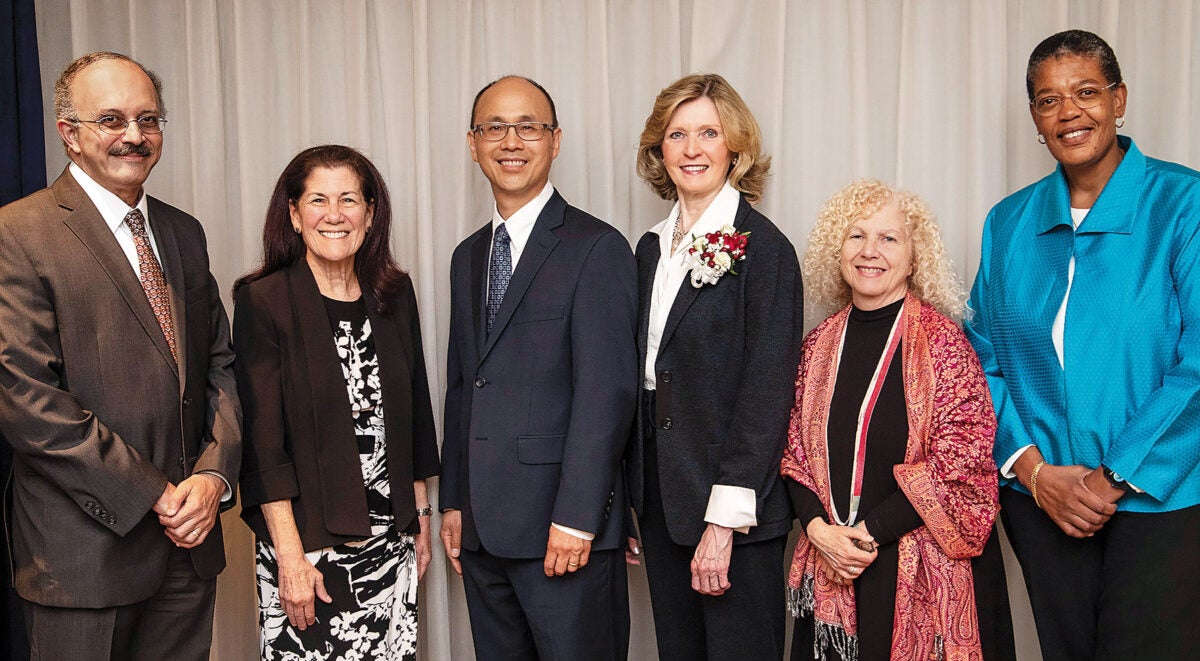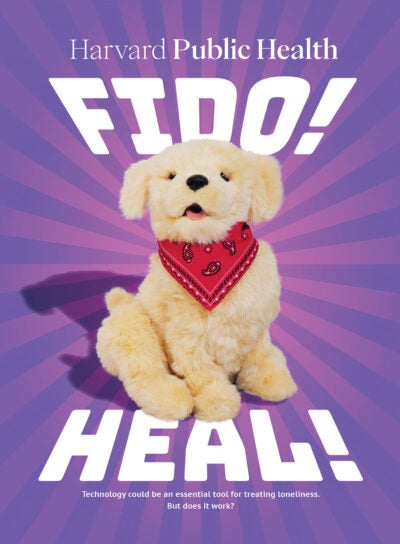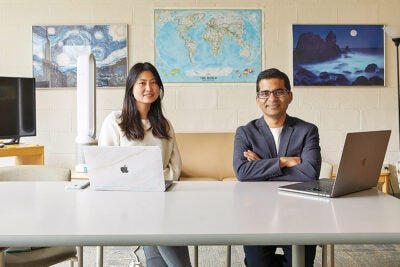Alumni news
2022 Harvard Chan School Alumni Award winners
Alumni Award recipients are chosen by their peers through a nomination and voting process. Watch videos about the recipients and recorded sessions from Alumni Weekend, September 22–24 .

Three of this year’s alumni award winners, (from left to right) Wafaie Fawzi, Julie Buring, and Stephen Hwang, with Lois B. Travis, MD, SM ’82, SD ’94 (2021 Award of Merit recipient), Kathleen Kahn, MBBCh, MPH ’88, PhD (2020 Award of Merit recipient), and Dean Michelle A. Williams, at 2022 Alumni Weekend.
Photo: Veronica Bruno
Alumni award of merit
Established in 1992, the Alumni Award of Merit is the highest honor presented by the Alumni Association to an alumna/us of Harvard Chan School.
Julie Buring, SD ’83
Julie Buring’s research focuses on the epidemiology of chronic diseases, particularly cardiovascular disease and cancer, and especially among women. She has been involved in several large-scale randomized clinical trials—including the Women’s Health Study and Physicians’ Health Study II—evaluating the preventive role of aspirin, vitamin E, and other vitamins. A highly regarded teacher of epidemiology, she has earned two Roger L. Nichols Excellence in Teaching Awards from Harvard Chan School. Buring is also known as a warm and dedicated mentor who has supported and shaped the careers of dozens of postdoctoral trainees, junior faculty members, and other mentees who are now serving as public health leaders around the world.
Wafaie Fawzi, MPH ’89, SM ’91, DPH ’92
Wafaie Fawzi is a physician and epidemiologist known for his work on interventions that enhance maternal and child health and development. At Harvard Chan School, he is the Richard Saltonstall Professor of Population Sciences; professor of nutrition, epidemiology, and global health; and former chair of the Department of Global Health and Population. Over the past 25 years, Fawzi has led more than 30 randomized controlled trials with an emphasis on nutritional factors. He has also studied the broader epidemiology of global health challenges, with a focus on developing countries in Africa and Asia. Fawzi founded the Africa Academy for Public Health and served as interim director of Harvard’s Center for African Studies during the pandemic.
Stephen Hwang, AB ’84, MPH ’96
Stephen Hwang is a physician, teacher, and researcher known for pioneering work in the field of homelessness, housing, and health. He is among the first researchers to quantify the impact of homelessness on mortality, proving that homeless men are eight times more likely to die prematurely than those in the general population. A professor of medicine at the University of Toronto, he is also chair in homelessness, housing, and health—the first such endowed position in the world. His work inspired campaigns in the U.S. and Canada focused on housing long-term and medically vulnerable homeless people. Hwang continues to practice medicine and to lead a research team dedicated to issues that his homeless patients face.
Emerging public health professional award
Sameer Kadri-Rodriguez, SM ’14
Sameer Kadri-Rodriguez has dedicated his career as a physician and researcher to improving health outcomes for people with lethal infections, both at the bedside and on a population scale. At the NIH, Kadri-Rodriguez created and headed the organization’s Clinical Epidemiology Section and Data Lab, in addition to serving as principal investigator and as an attending physician in the NIH’s intensive care unit. Each of these roles has helped Kadri-Rodriguez bring to light new discoveries related to treating sepsis, antimicrobial resistance, and COVID-19. During the pandemic, he led a team of NIH investigators simultaneously testing multiple treatment hypotheses in near real time for more than 800 U.S. hospitals, and collaborated with the CDC on epidemiological investigations.
Public health innovator award
Carlos Camargo, DPH ’96
Carlos Camargo started the first of several studies on the health effects of moderate alcohol consumption as an undergraduate at Stanford, and his first paper, published in the New England Journal of Medicine, made important contributions to understanding the impact of alcohol on heart disease and its effect on risk factors. Camargo was the first to document a link between being obese or overweight and the development of adult-onset asthma. He also founded the Emergency Medicine Network, an international research collaboration with 247 hospitals and a mission to advance public health objectives through diverse projects in emergency care—believed to be the largest, sustained emergency medicine research network ever assembled.
Leadership award in public health practice
Choochai Supawongse, MPH ’91, MOH ’92
For the past four decades, Choochai Supawongse has worked to promote health and sustainable development in Thailand as a physician, advocate, and public health leader. Supawongse is known for leading the charge to curb smoking in Thailand, and his efforts were recognized by the WHO. In 2017, the country established the Primary Health Care Board of Thailand, making primary health care a fundamental right for all—a cause he championed as a member of the National Reform Steering Assembly. His advocacy work continued during the COVID pandemic, during which he helped ensure that the country’s underserved populations received care.



